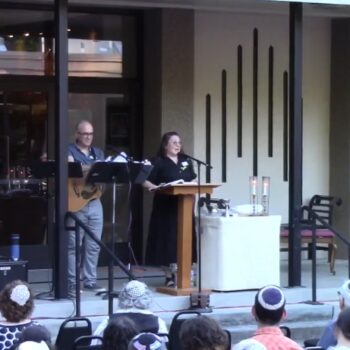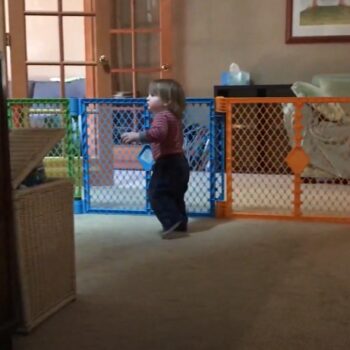Whatever group you’re addressing, whether it’s a class, a congregation, or a team meeting, ask how everyone is. It shows you care as a teacher and leader. Small talk can make a big impact, and sometimes it’s these exact types of questions that remind us to pay attention to those around us.
By living in proximity to others who share our values and traditions, we’re able to connect more deeply and support more vibrantly. I’m grateful every day to live in community with you.
Water isn’t just a resource we need to live; it plays an important role in Jewish tradition beyond ensuring that living things can thrive. From the water used in ritual hand washing to the mikveh to tahara, the ritual washing of a body after death, water can transform from the inside out and the outside in. And this is no more evident than in our Torah portion for this week.
While it may have felt cathartic for Moses, it was likely unhelpful for the angry Israelites to see their leader lose control. I can sympathize with both sides. Leaders often have heavy loads to bear, and every decision can’t be a perfect one. The lesson? Kindness and understanding is the winning combo, whether you’re in charge or not.
What we learn from Shlach Lecha is that reflective practice is healthy when we’re looking back in order to find a stronger, more sustainable path forward. Nevertheless, this is a stern warning from God that “should-ing” on ourselves can be counterproductive. Instead, we must send ourselves, shlach lecha, into the future with the strength of experience, knowing what our past has taught us.
If it feels like a struggle to find God today, you’re not alone. However, I’d argue that even if we’re not necessarily on the move like the Israelites, couldn’t the clouds still serve the purpose they did in the Torah?
When we moved to Portland from Dallas, we went from a single-story house to a house with stairs. We spent so much time trying to figure out how to babyproof for this new situation. How much of this preparation was necessary for safety and how much was for our own peace of mind? At what point are we building baby gates around baby gates?










